We live in the world of today
Elmer J Fudd
6 years ago
last modified: 6 years ago
Featured Answer
Sort by:Oldest
Comments (52)
maddielee
6 years agoKennsWoods
6 years agoRelated Discussions
The World Today (12-26)
Comments (12)That was just too funny! I actually did LOL! Thundershower = thunder and precipitation Thunderstorm = no precipitation. I'm an aviation weather briefer in my real life so I tend to get a wee bit verbose at times. You didn't notice that did you? Conversation versus gallery, that thought had crossed my mind as well. If we just sort of gravitate over here to talk, what's the harm? Lloyd...See MoreWhat an amazing world we live in
Comments (6)There certainly are some interesting insects in that slideshow. I somehow got sidetracked and started looking up tropical plants and butterflies after I watched it. I've gotten very little housework done this morning. lol I think it was the beautiful photo of the Emperor Butterfly that started my surfing. The red and black hummingbird moth didn't look familiar but it says USA....See MoreToday Is World Nutella Day
Comments (21)I agree, CC, at some point we need to take responsibility for ourselves, what we purchase and what we eat and stop expecting the government to "take care of us". Geez. Read the label, it clearly states the ingredients, the calorie content, the fat grams. It's not like it's a big secret, it's right there, printed on every jar. It's provided free, every single time, in easily accessible form. That's why Nutella is a dessert here, spread on graham crackers, or an occasional treat for The Princess on waffles or toast, because I can read. That's why I know that although it's got half of the calories from fat, I know that only 3.5 of those fat grams are saturated and none are transfats, it's the healthier fat from the hazelnuts. If you check a label of Peanut butter (in this instance I'll use Skippy Creamy because that's what's in my desk drawer), you'll find that peanut butter has 190 calories in 2 tablespoons and 140 of those are fat, more than Nutella. 3 grams are saturated in Skippy peanut butter, 3.5 grams are saturated in the Nutella. Nutritionists differentiate between good fats and bad fats. Peanut butter does have more than twice the protein of Nutella, so it's a more economical protein source. What makes it dessert in my family is the sugar content, not the fat grams, but if you add jelly to a peanut butter sandwich that's pretty much negated too. Anyway, read the labels and take responsibility for yourself, and then you won't have the opportunity to make a lot of money and clog up the court systems. Oh, and send me ALL of your Nutella, I know how bad it is for me. It's that "reading" thing again. I won't sue you, I promise. Annie...See MoreWorld Fell Apart Today..
Comments (64)Thanks for telling us about your DD. Our DIL taught 8th Grade Math in a tough Chicago neighborhood for years until a transfer to a 'less-tough' one two years ago. I think your girl must be a strong person -- one who can meet this challenge and come out of it even stronger -- with your support. I don't remember where I heard this -- probably right here at the KT: A mother is only as happy as her least happy child. But that doesn't mean that Mom can fall apart! I'm glad to see from your posts that the immediate shock is passing, and you are girding for the battle ahead. Your DD is going to be *fine*. This bad news is life *threatening*, not a death sentence. The battle will be won. Look to the light. (And come here to unload fear and uncertainty.)...See Morechisue
6 years agoblfenton
6 years agolucillle
6 years agoeld6161
6 years agoartemis_ma
6 years agolast modified: 6 years agostacey_mb
6 years agoronminsouthga
6 years agoAdella Bedella
6 years agoarcy_gw
6 years agoartemis_ma
6 years agolast modified: 6 years agoingeorgia
6 years agonickel_kg
6 years agolast modified: 6 years agoOutsidePlaying
6 years agomurraysmom Zone 6a OH
6 years agoChi
6 years agoCherryfizz
6 years agolast modified: 6 years agoPKponder TX Z7B
6 years agoOlychick
6 years agojemdandy
6 years agoUser
6 years agoChi
6 years agolast modified: 6 years agoeld6161
6 years agolast modified: 6 years agoUser
6 years agoAlisande
6 years agoUser
6 years agoElmer J Fudd
6 years agolast modified: 6 years agonickel_kg
6 years agoElmer J Fudd
6 years agolast modified: 6 years agonickel_kg
6 years agolast modified: 6 years agolittlebug zone 5 Missouri
6 years agolast modified: 6 years agoAnglophilia
6 years agoAnglophilia
6 years agophoggie
6 years agolast modified: 6 years agoUser
6 years agoingeorgia
6 years agoUser
6 years agoAnglophilia
6 years agoChi
6 years agoOaktown
6 years agoElmer J Fudd
6 years agolast modified: 6 years agojoyfulguy
6 years agoUser
6 years agoOutsidePlaying
6 years agolast modified: 6 years agoJenn TheCaLLisComingFromInsideTheHouse
6 years agoJulie
6 years agolast modified: 6 years agoElmer J Fudd
6 years agolast modified: 6 years agoKathsgrdn
6 years ago
Related Stories
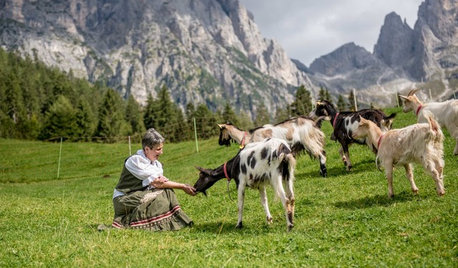
FARMHOUSESWorld of Design: See How 9 Families Live and Farm on Their Land
Join us as we visit the homes and farms of passionate food producers and hear about rural life around the globe
Full Story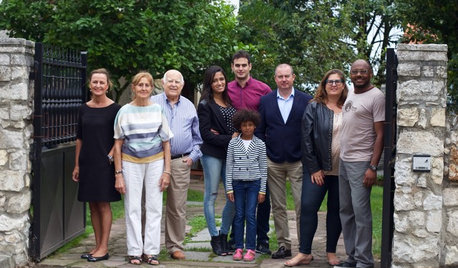
LIFEWorld of Design: See How 7 Families Live in Multigenerational Homes
What happens when three or more generations live within shouting distance of one another? More hugging than shouting, actually
Full Story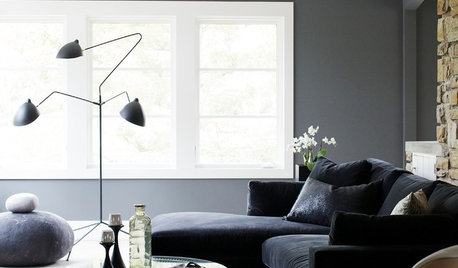
MODERN STYLEOut-of-This-World Decorating: Space Age Style for Today
Set starbursts and more around your personal universe for a look alight with imagination
Full Story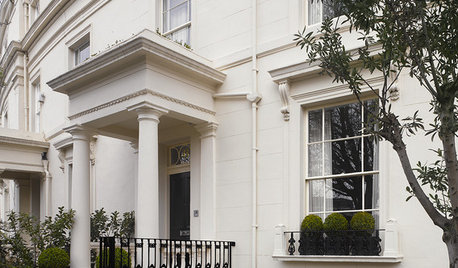
DECORATING GUIDESGeorgian-Inspired Elegance Lives on in Today's Homes
Classical design from a bygone era gives today's homes beautiful proportions, subtle color palettes and decorative architectural features
Full Story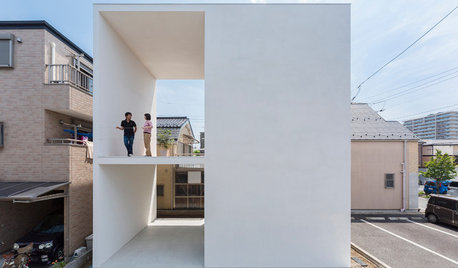
HOMES AROUND THE WORLDWorld of Design: Compact Tokyo Home Squeezes In Lots of Living Space
A 3-story house on a 755-square-foot lot includes a sheltered terrace that adds privacy and pulls in breezes and light
Full Story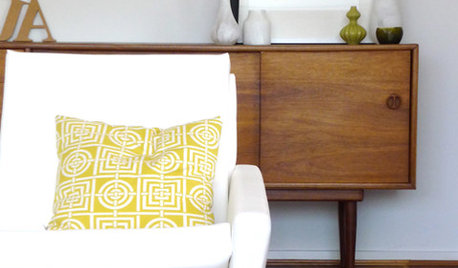
DECORATING GUIDESDecorating Around the World: Easy Living in Australia
Indoor-outdoor living, mid-century accents and coastal touches exemplify design Down Under
Full Story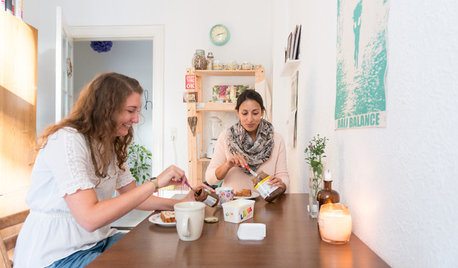
LIFEWorld of Design: 10 Ways to Live in Harmony With Housemates
Roommates in 10 countries share their stories of how they met and how they keep their home lives happy
Full Story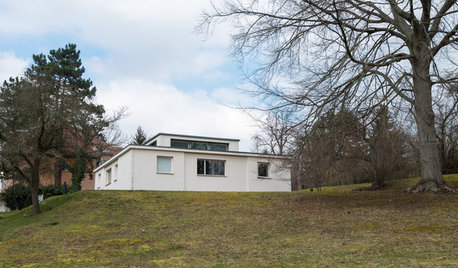
MOST POPULARArchitectural Icon: The World’s First Bauhaus House
The Haus am Horn in Weimar is the first architectural example from the famed school, and the only one in the German city where Bauhaus began
Full Story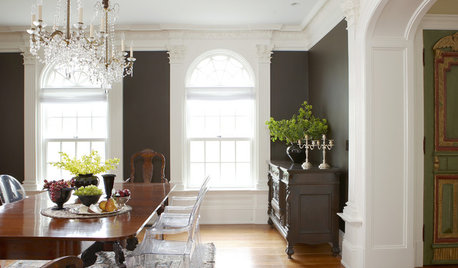
MOST POPULARDare to Decorate With ‘The World’s Ugliest Color’
See how this hue can actually look quite handsome inside your home
Full Story
KITCHEN DESIGNKitchen of the Week: Classic Eichler Updated for Today’s Needs
A designer helps a couple honor their midcentury home’s design while creating a kitchen that works for their lifestyle
Full Story


Anglophilia